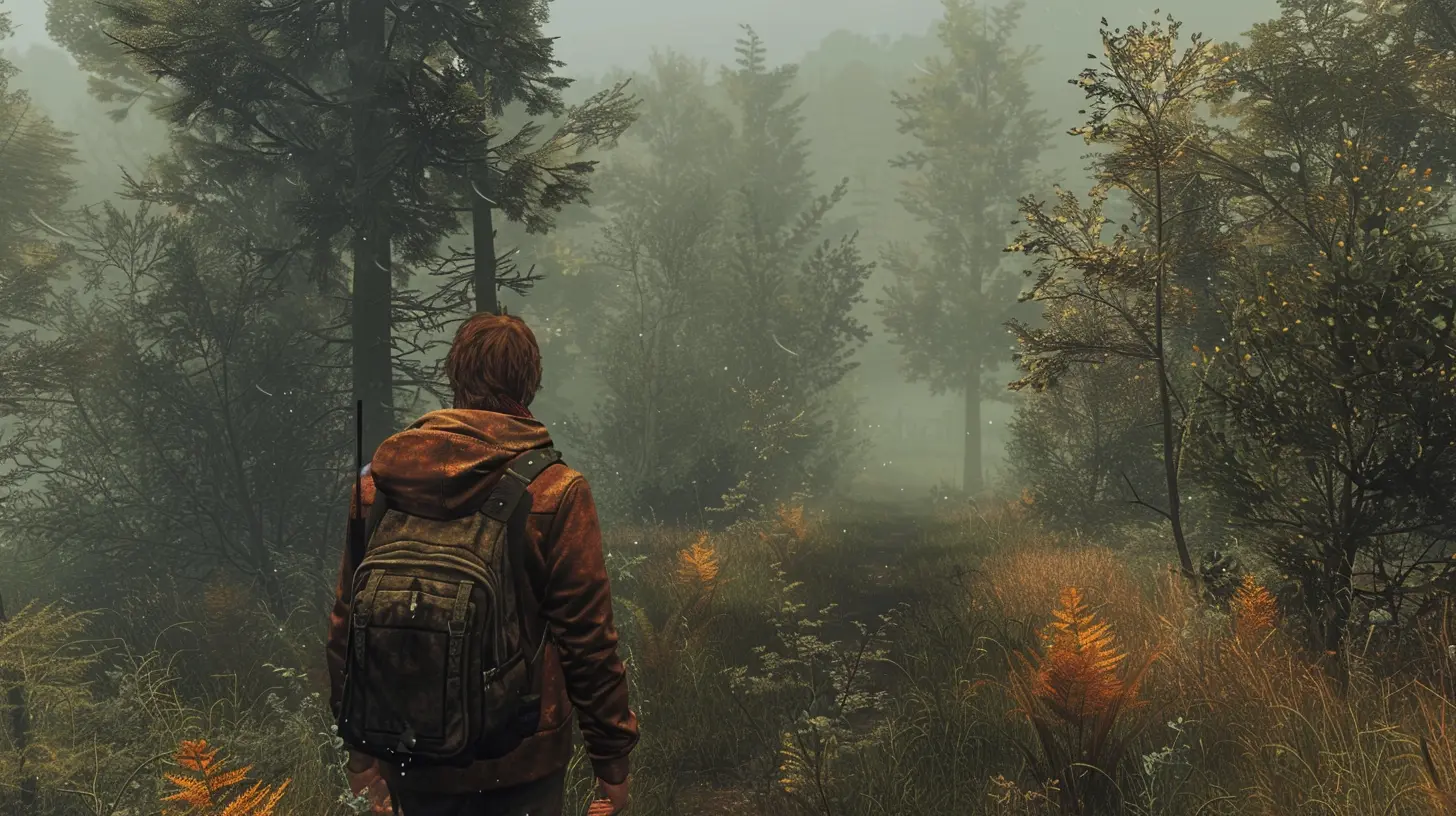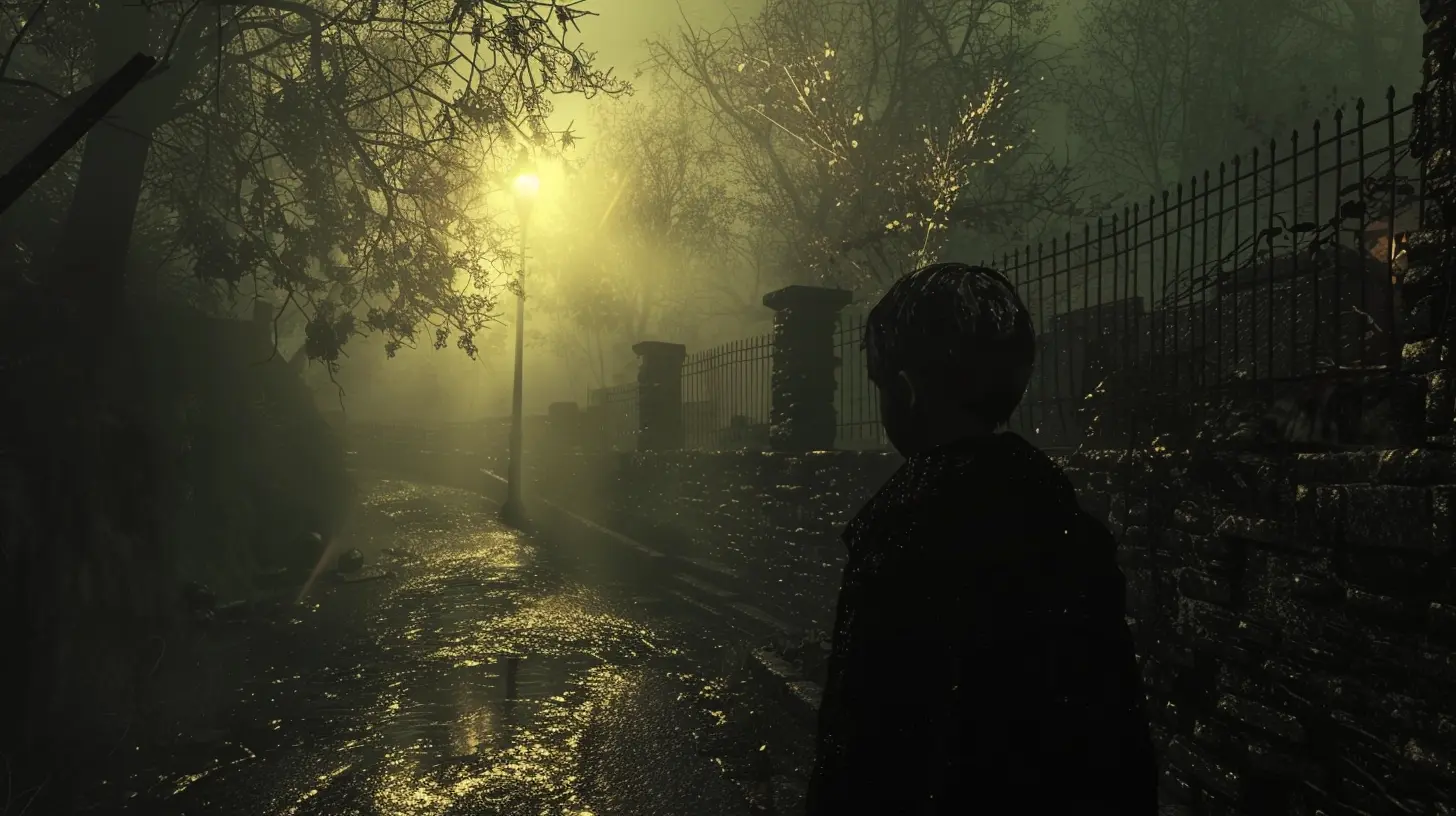The Rise of Narrative-Focused Walking Simulators
27 August 2025
There’s been a quiet revolution brewing in gaming for the past decade. No, it’s not another open-world shooter or the next pixel-perfect battle royale. Instead, it’s something that’s less about the action and more about the experience — something that invites you to slow down, smell the roses, and just... walk. We’re talking about walking simulators. Yep, those games where you don’t necessarily “win” but instead immerse yourself in a story so deeply, it stays with you long after the credits roll.
So, what exactly sparked the surge in narrative-focused walking simulators? Why are players gravitating toward these slow-paced, emotion-packed gems? Let’s take a deep dive into this fascinating transformation in the gaming landscape.
What Are Walking Simulators, Anyway?
Okay, first things first — what the heck is a walking simulator?At their core, walking simulators are games that place a strong emphasis on storytelling and exploration over traditional gameplay mechanics. You don’t fight enemies, you don’t collect coins, and don’t expect to grind XP. Instead, you walk (surprise!), interact with your environment, read notes, listen to voiceovers, and piece together stories — often emotional, mysterious, or philosophical in tone.
Think of them as playable novels or interactive films. They pull you into a world and let you feel it at your own pace.
The Roots: How It All Began
The term "walking simulator" started as a bit of a joke — a derogatory term used by some gamers to criticize titles that lacked "real gameplay." But like many things in life, it evolved. What was once mockery became a badge of honor. Games like Dear Esther (2012) and Gone Home (2013) took the gaming industry by storm, offering players something fresh: a chance to live and breathe inside a story.Those early titles proved you didn’t need guns and glory to create a compelling gaming experience. You just needed a strong atmosphere, a relatable story, and the guts to do something different.
Why Players Fell in Love With Narrative-Focused Games
1. A Break From the Chaos
Let’s be honest — after an hour of dodging bullets and grinding loot in hyper-intense shooters, your brain could use a break. Walking simulators are like a digital spa day. They let you unwind, engage with a well-crafted story, and just chill. There’s no stress — just curiosity and emotional discovery.2. Engaging, Emotional Storytelling
Ever cry during a game? If you've played What Remains of Edith Finch, you probably did.Walking sims have a magical ability to tug at your heartstrings. Because they're not obsessed with gameplay mechanics, they get to focus fully on character development, mood-setting music, and layered plotlines.
They don’t just tell you a story — they show it through every creaky floorboard, every scattered photo, and every echoing voiceover. Sometimes, you learn more about life in an hour with a walking sim than you do after 60 hours with a traditional RPG.
3. Accessibility Matters
Not everyone’s a pro gamer. Some folks just want to enjoy a beautiful story without having to master complicated controls or survive epic boss battles. Walking simulators are super accessible — grandmas can play them, young kids can play them, even your non-gamer friend who only plays Candy Crush can get into them.And guess what? They’re just as satisfying, if not more, because they’re grounded in real human emotion.
The Big Names That Shaped the Genre
Dear Esther (2012)
Arguably the progenitor of the genre, Dear Esther threw players into a desolate island, tasked with exploring a haunting narrative about grief and loss. No quests, no enemies — just you, the island, and a delicate story unfolding piece by piece.Gone Home (2013)
Set in the '90s, Gone Home let you explore an empty house as Katie, a girl returning home only to find her family missing. As you wander, you piece together what happened, uncovering a deeply personal story of identity, love, and change.Firewatch (2016)
This one’s a fan favorite. You play as Henry, a guy trying to escape his personal problems by becoming a fire lookout in the Wyoming wilderness. With only your walkie-talkie buddy Delilah for company, the game unfolds through stunning visuals, witty dialogue, and an emotionally resonant plot.What Remains of Edith Finch (2017)
This is the Titanic of walking sims — a tragic, beautiful masterpiece. You play as Edith, the last surviving member of the Finch family, as she explores her eerie home and uncovers the peculiar, often heartbreaking, stories of each family member. Goosebumps guaranteed.
Why the Genre Continues to Grow
A Reflection of Our Times
We live in a fast-paced, burnout-heavy world. Sometimes you need a game that’s more meditation than mayhem. Narrative-focused walking simulators hit that sweet spot. They let you decompress and still feel like you accomplished something meaningful.Indie Developers Leading The Way
Most walking simulators come from indie studios — the rebels of the gaming world. Free from the pressure of mass-market formulas, indie devs can take risks, explore weird and wonderful themes, and push storytelling boundaries. And thank goodness they do! Otherwise, we’d miss out on gems like The Stanley Parable or Everybody’s Gone to the Rapture.VR and Walking Sims? A Perfect Marriage
Virtual Reality has breathed new life into the genre. Can you imagine walking through a haunted mansion or a memory-filled house in VR? The immersion is next level. You’re not just hearing the story — you’re inside it. Games like The Under Presents and Half-Life: Alyx (yes, more narrative than you'd expect) show just how powerful this combo can be.Common Themes In Narrative Walking Simulators
You’ll notice a few recurring themes popping up across different titles — and it’s no coincidence. Here’s what you’ll usually find:- Grief and Loss: These games aren’t afraid to tackle heavy topics. They do it with grace, turning sorrow into soul-searching journeys.
- Isolation: Often, you’re the only person around — which makes every discovery feel more intimate.
- Memory and Identity: Uncovering who you are, or who someone else was, through clues scattered in the environment? Totally engaging.
- Mystery: Whether it’s a suspicious disappearance or a house full of secrets, these games love to keep you guessing.
Criticisms and Controversies
Alright, let’s not pretend everyone loves walking sims. Critics often slam them for being “not real games,” or complain about the slow pace and lack of interaction. Some players find them boring, or too short for the price tag.But here’s the thing — not every game needs to be about reflexes and competition. It’s okay for games to make you feel instead of fight. Walking simulators push the boundaries of what games can be — and that’s something worth celebrating.
The Future of Walking Sims
So, where’s it all going?Expect even more blending of genres. We’re already seeing walking sims borrowing mechanics from puzzle games, survival titles, and even horror (looking at you, Layers of Fear). With advancements in AI, procedural storytelling, and VR technologies, the next generation of walking simulators could be even more immersive and emotionally powerful.
There’s also a growing appetite for meaningful stories in games. Players crave depth and connection. And walking sims? They're the perfect response to that demand.
Final Thoughts
In a gaming world dominated by explosions, leaderboards, and loot boxes, walking simulators offer something rare — space to breathe. They’re more than just “games where you walk around.” They’re invitations to think, to feel, and to connect with stories in a way no book or movie ever could.Whether you’re navigating the emotional labyrinth of Edith Finch, uncovering secrets in an empty house, or walking through the remnants of a forgotten town, narrative-focused walking simulators remind us that sometimes, the best stories are the ones we walk through.
So next time someone says, “Eh, it’s just a walking simulator,” go ahead and smile. Those are the games that stick with you — not because you scored big, but because you felt something real.
all images in this post were generated using AI tools
Category:
Game NarrativesAuthor:

Greyson McVeigh
Discussion
rate this article
1 comments
Scout Gilbert
Walking simulators are the new power players in gaming! Who needs combat when you can have deep feels and existential dread? Let’s face it—sometimes, we just want to stroll through beautifully crafted worlds and soak in the story. A little less action, a lot more introspection, please!
September 27, 2025 at 4:48 AM

Greyson McVeigh
Absolutely! Walking simulators offer a unique way to explore emotions and narratives, allowing players to connect with stories in a deeply immersive way. They prove that sometimes, the journey is more impactful than the action.


